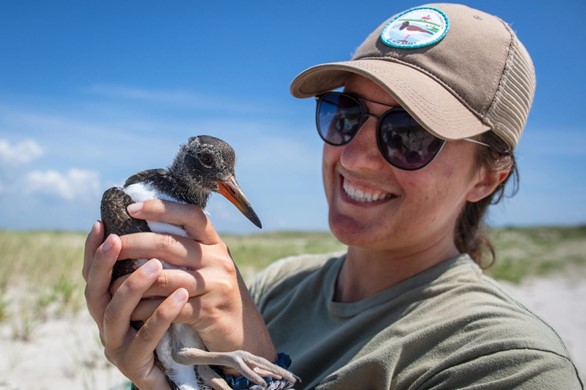Lessons Learned from a Summer of Banding American Oystercatchers
by Emmy Casper, Wildlife Biologist

Those who have followed CWF’s work throughout the years know how important bird banding can be for wildlife biologists and conservationists. The practice, which involves placing metal and/or color bands on a bird’s legs, can provide useful information about that bird’s life history, site fidelity, and movement. Typically, banded shorebirds are equipped with a unique alphanumeric code or color combination (kind of like a name tag), which enables scientists to track an individual bird throughout its lifetime. For those monitoring New Jersey’s beach-nesting bird populations, bird banding greatly enhances the quality and accuracy of our productivity data, which allows us to make better-informed decisions regarding management.
Continue reading “Lessons Learned from a Summer of Banding American Oystercatchers”